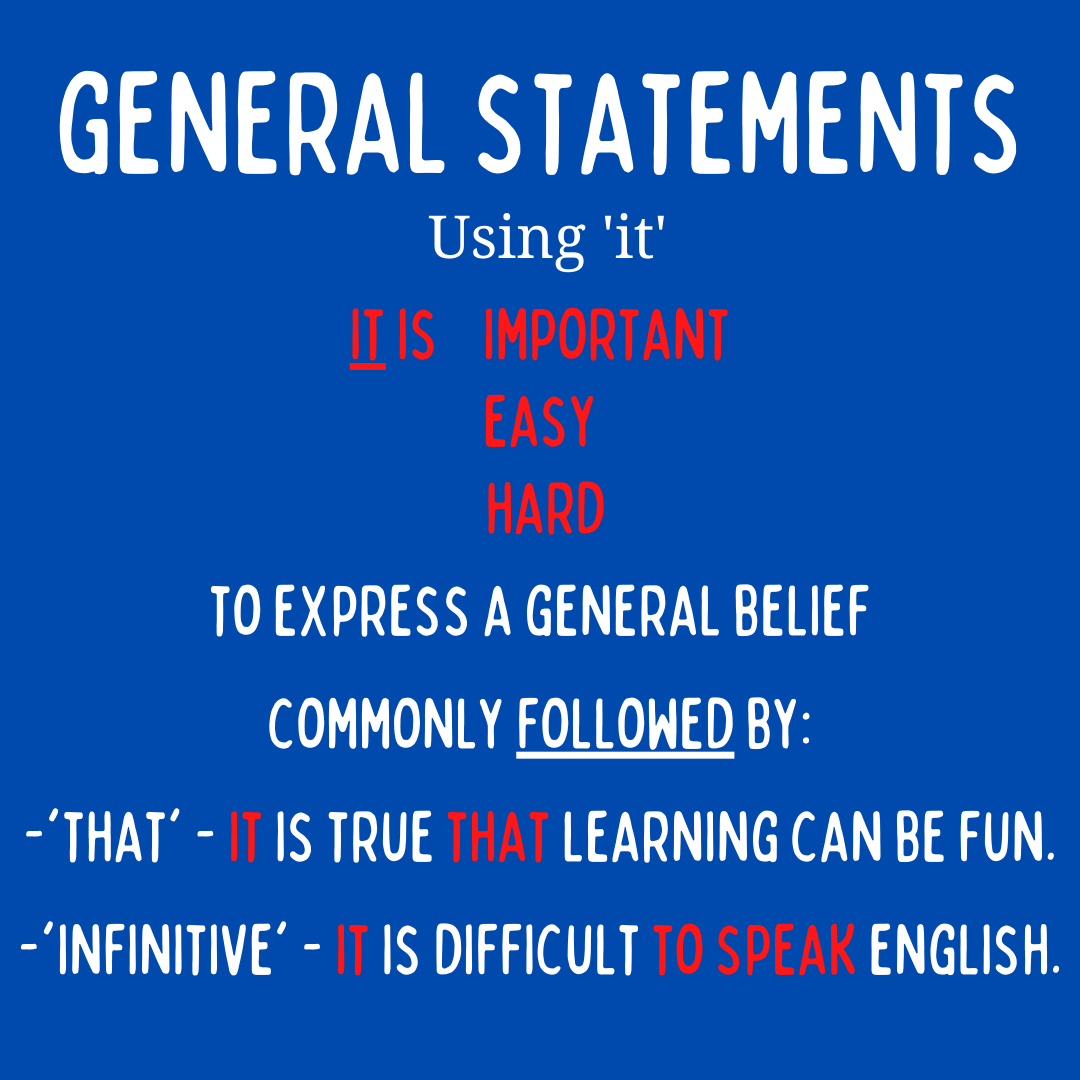
The pronoun 'it' can be used to express a general belief
-commonly followed by:
-'that' - it is true that learning can be fun.
-'infinitive' - it is difficult to speak english.

The pronoun 'it' can be used to express a general belief
-commonly followed by:
-'that' - it is true that learning can be fun.
-'infinitive' - it is difficult to speak english.
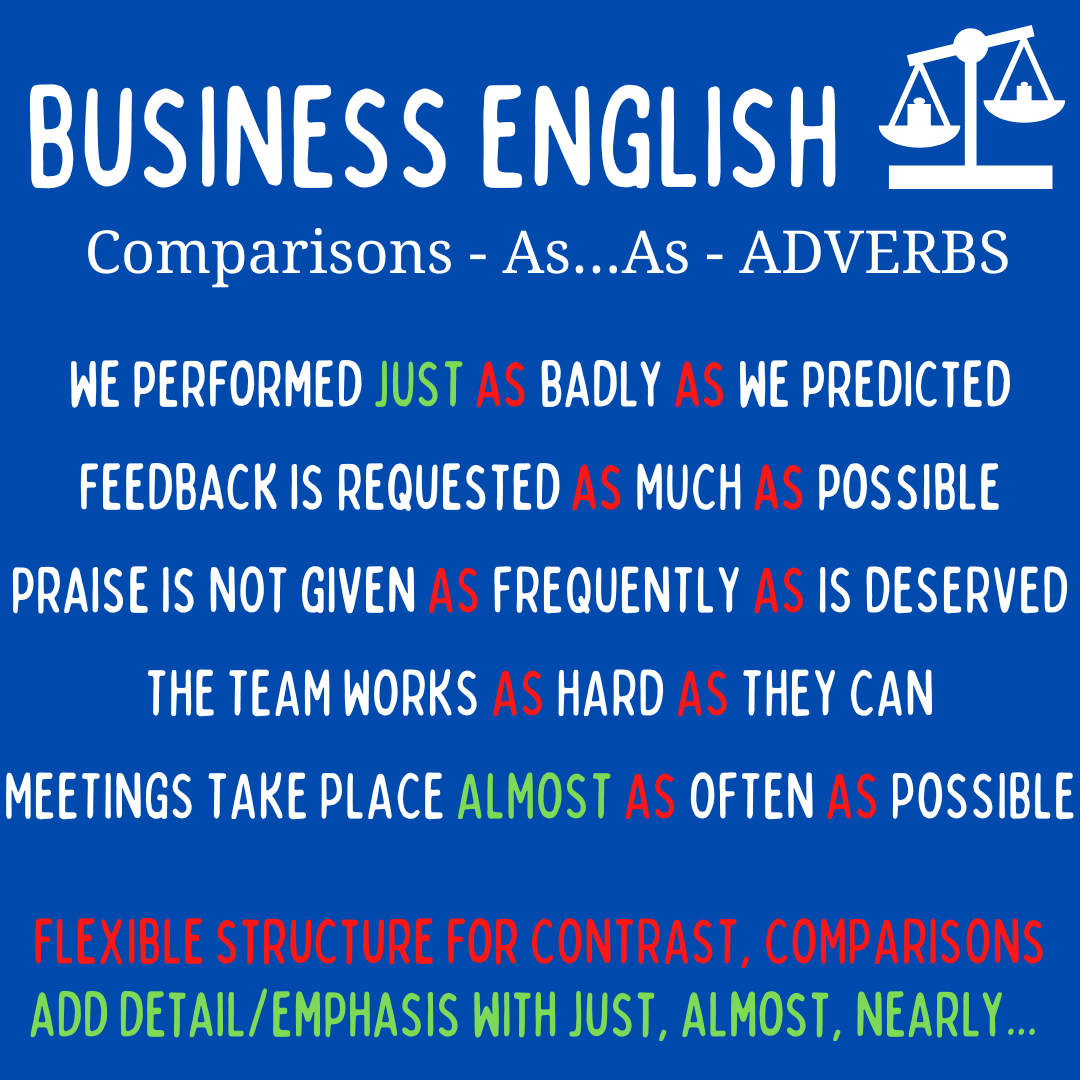
Compare and contrast using 'as ... as' with adverbs. For extra detail add just, almost, nearly...
-We performed JUST as badly as we predicted
-Feedback is requested as MUCH as possible
-Praise is NOT given AS FREQUENTLY AS IS DESERVED
-The team works as hard as they can
-Meetings take place almost as often as possible
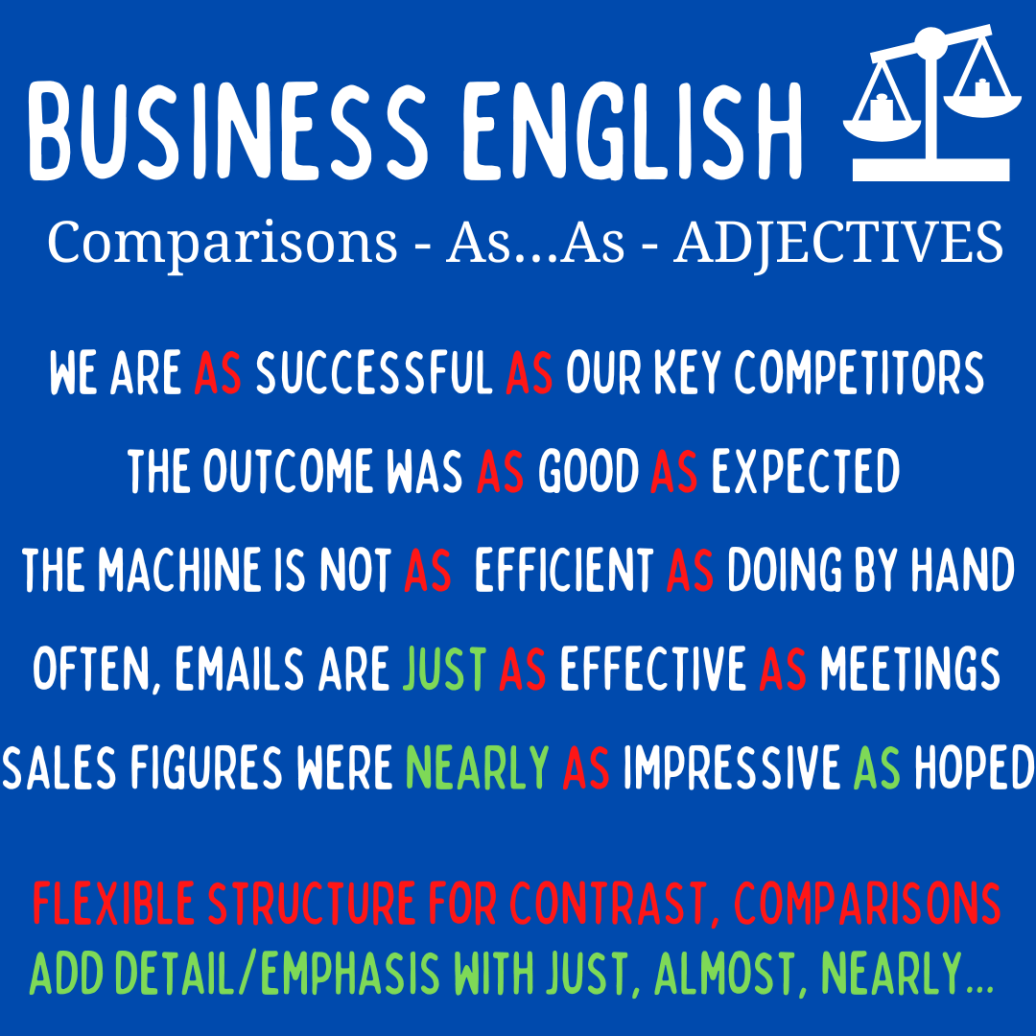
Compare and contrast using 'as ... as' with adjectives. For extra detail add just, almost, nearly...
-We are as successful as our key competitors
-The outcome was as good as expected
-The machine is not as efficient as doing by hand
-Often, emails are just as effective as meetings
-Sales figures were nearly as impressive as hoped
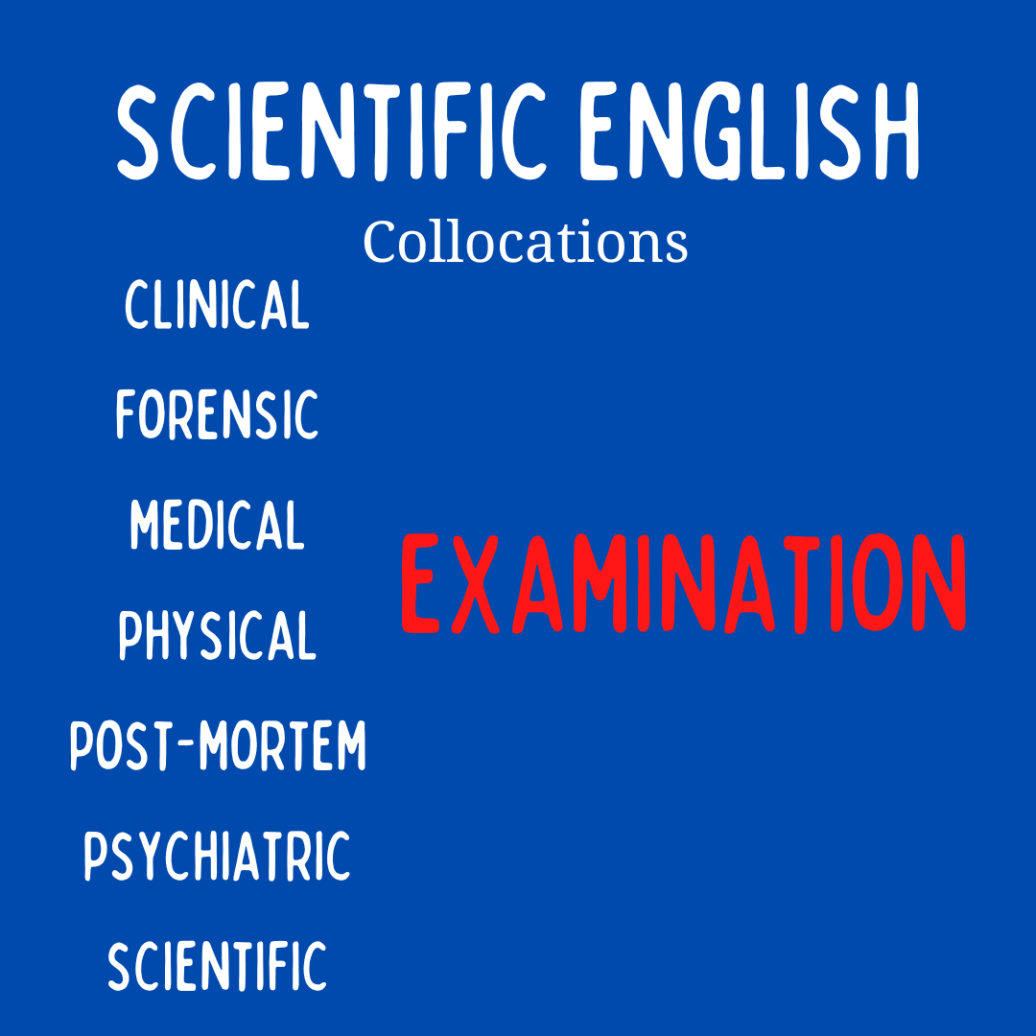
Collocations are words that occur together more frequently than by chance. To native-speakers, this feels instinctive. Learning collocations allows non-native-speakers to sound 'more natural'.
EXAMINATION:
clinical
forensic
medical
physical
post-mortem
psychiatric
scientific
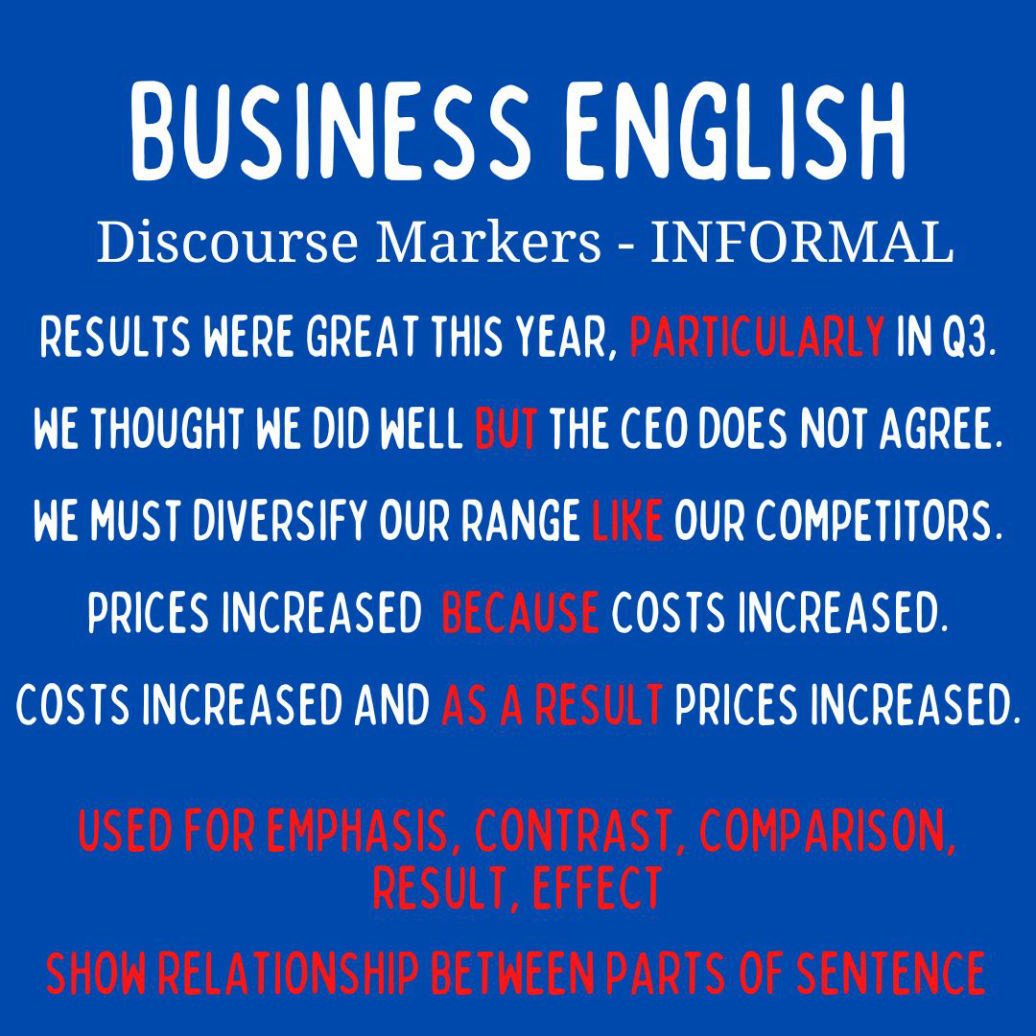
Discourse markers are used for emphasis, contrast, comparison, result and effect.
Results were great this year, particularly in q3.
We thought we did well but the CEO does not agree.
We must diversify our range like our competitors.
Prices increased because costs increased.
Costs increased and as a result prices increased.
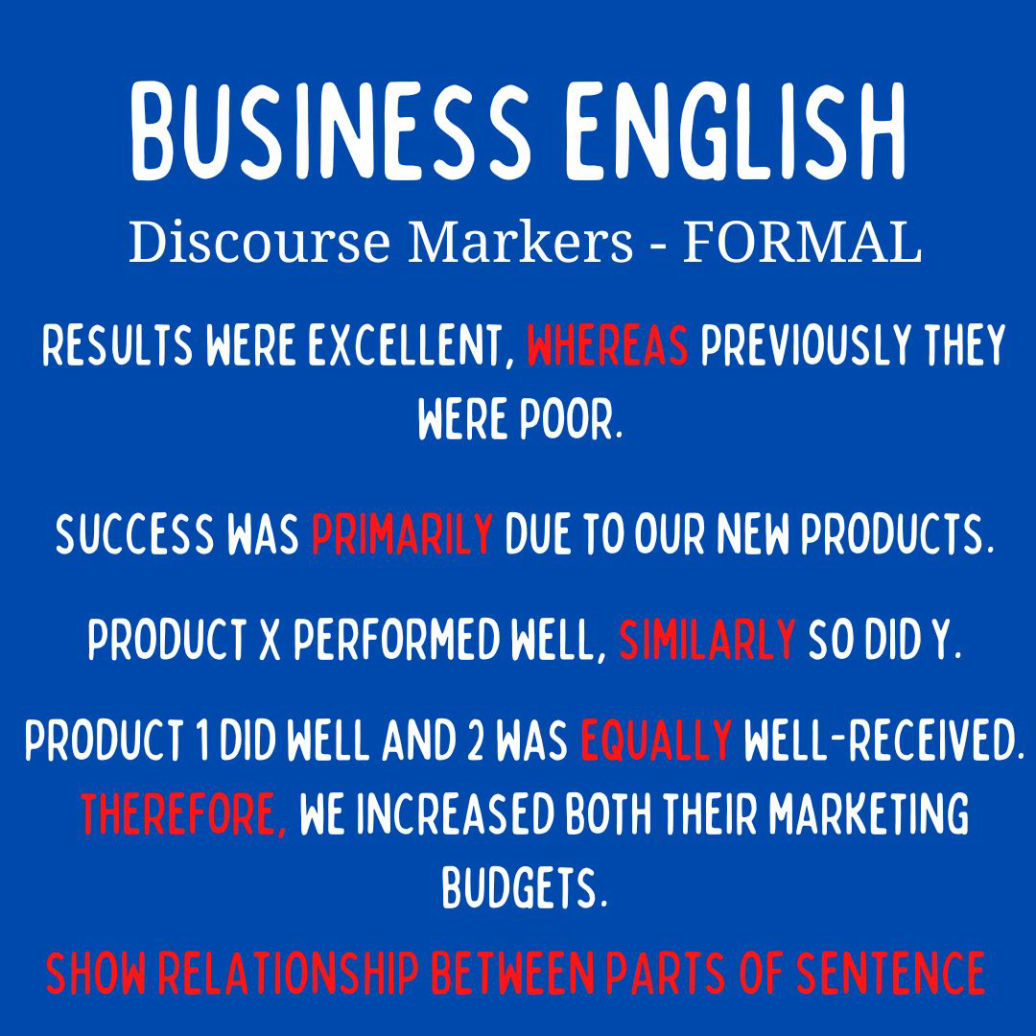
Discourse markers are used to show relationship between parts of a sentence.
Results were excellent, whereas previously they were poor.
Success was primarily due to our new products.
Product x performed well, similarly so did y.
Product 1 did well and 2 was equally well-received. Therefore, we increased both their marketing budgets.
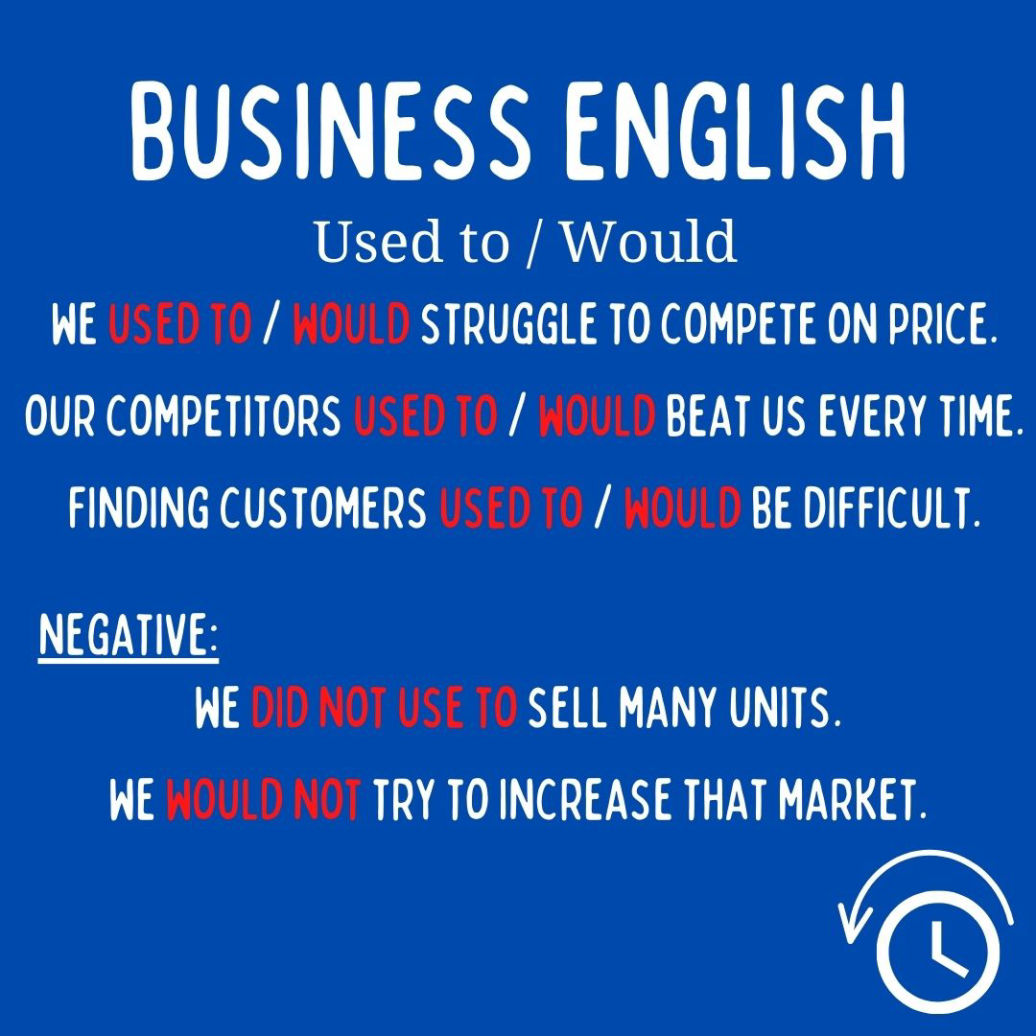
Use 'Used to' and 'would' to talk about past events.
-We used to / would struggle to compete on price.
-Our competitors used to / would beat us every time.
-Finding customers used to / would be difficult.
Negative:
-We did not use to sell many units.
-We would not try to increase that market.
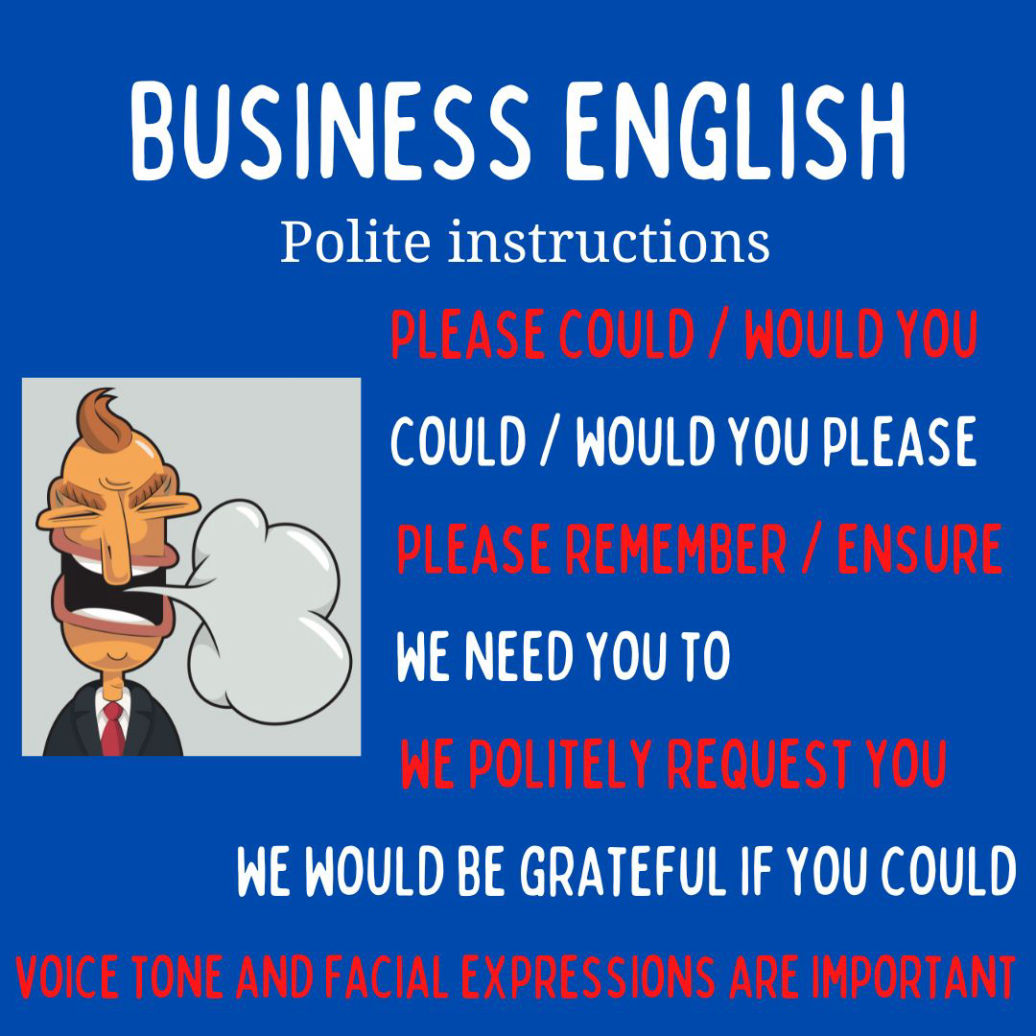
Giving instructions in a business situation requires the use of polite language. Ensure not to upset colleagues by using appropriate phrases. Vocal tone and facial expressions are also key to maintaining amiable relationships.
-Please could / would you
-Could / would you please
-Please remember / ensure
-We need you to
-We politely request you
-We would be grateful if you could
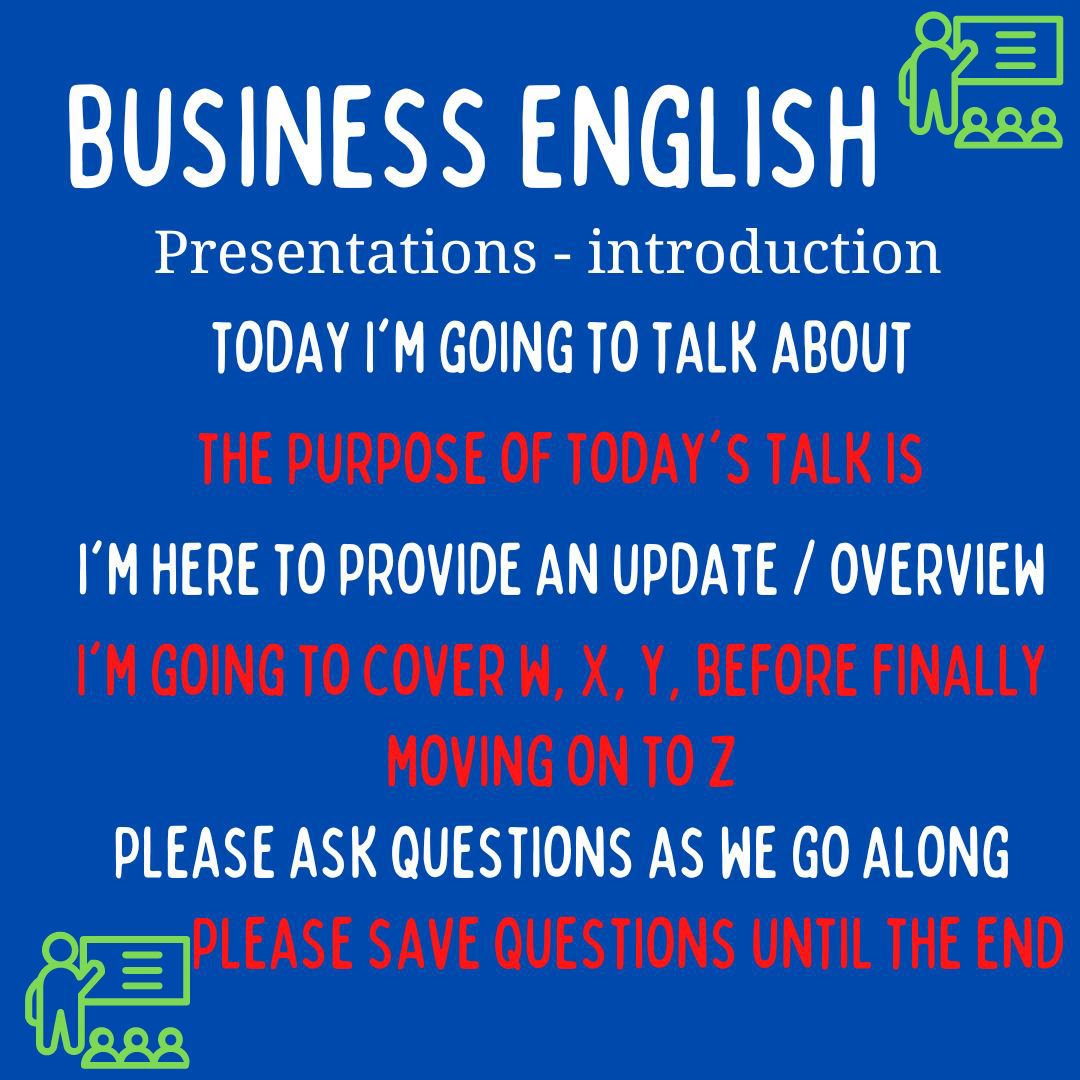
A good business presentation requires appropriate language, which should be delivered in a comprehensible (and hopefully, interesting!) manner. Here are some useful phrases for your presentation's introduction section:
-Today I'm going to talk about
-The purpose of today's talk is
-I'm here to provide an update / overview
-I'm going to cover w, x, y, before finally moving on to z
-Please ask questions as we go along
-Please save questions until the end
Presentation tips:
-Content: Know exactly what you want to talk about
-Language and tone: Know how you intend to communicate your content to your specific audience.
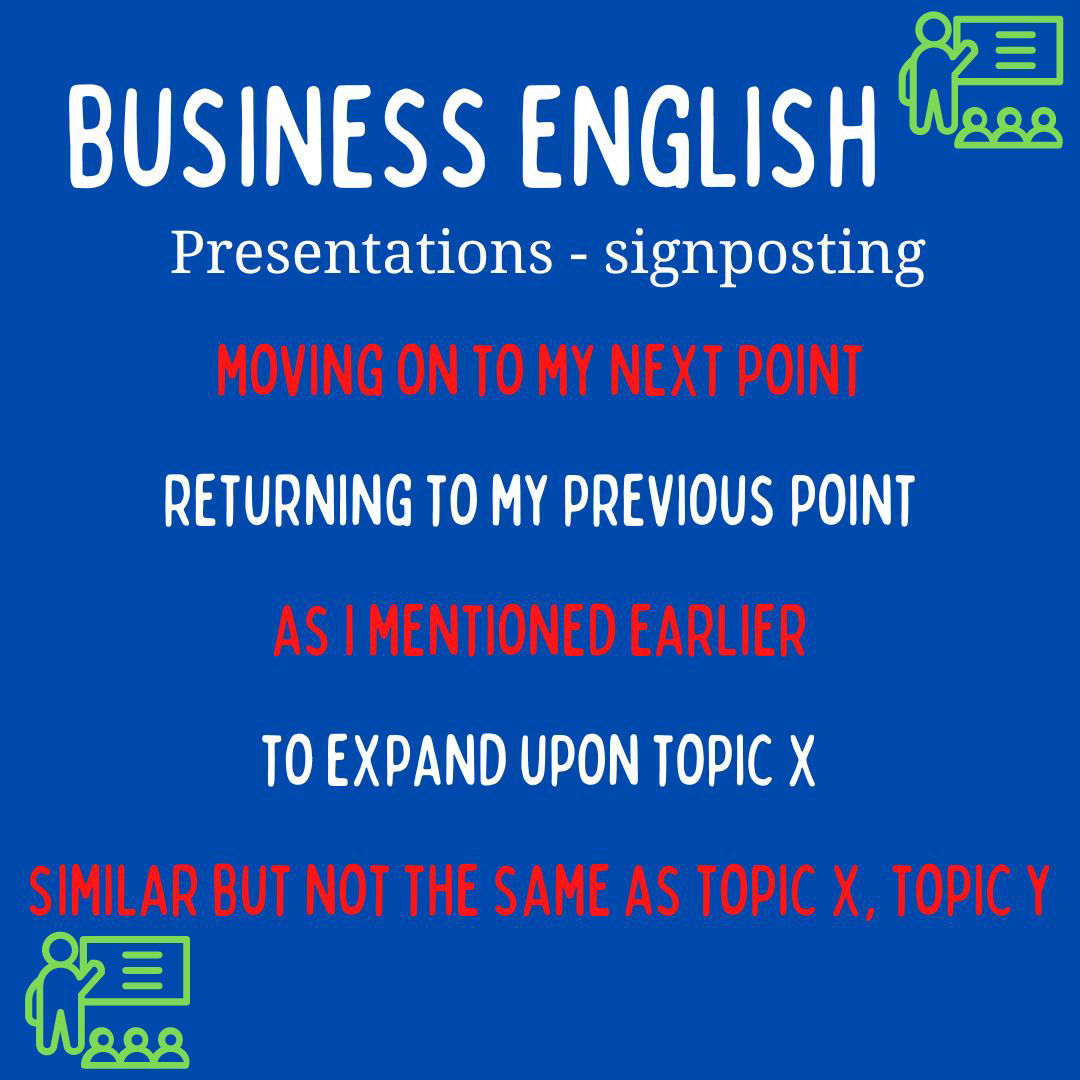
To make your presentation flow smoothly, it is important to be able to link from one point to the next. Here are some useful phrases:
-Moving on to my next point
-Returning to my previous point
-As i mentioned earlier
-To expand upon topic x
-Similar but not the same as topic x, topic y...
Presentation tips:
-Introduce ideas in an organised way
-Ensure you are able to easily locate particular slides if you intend to return to previously-covered material
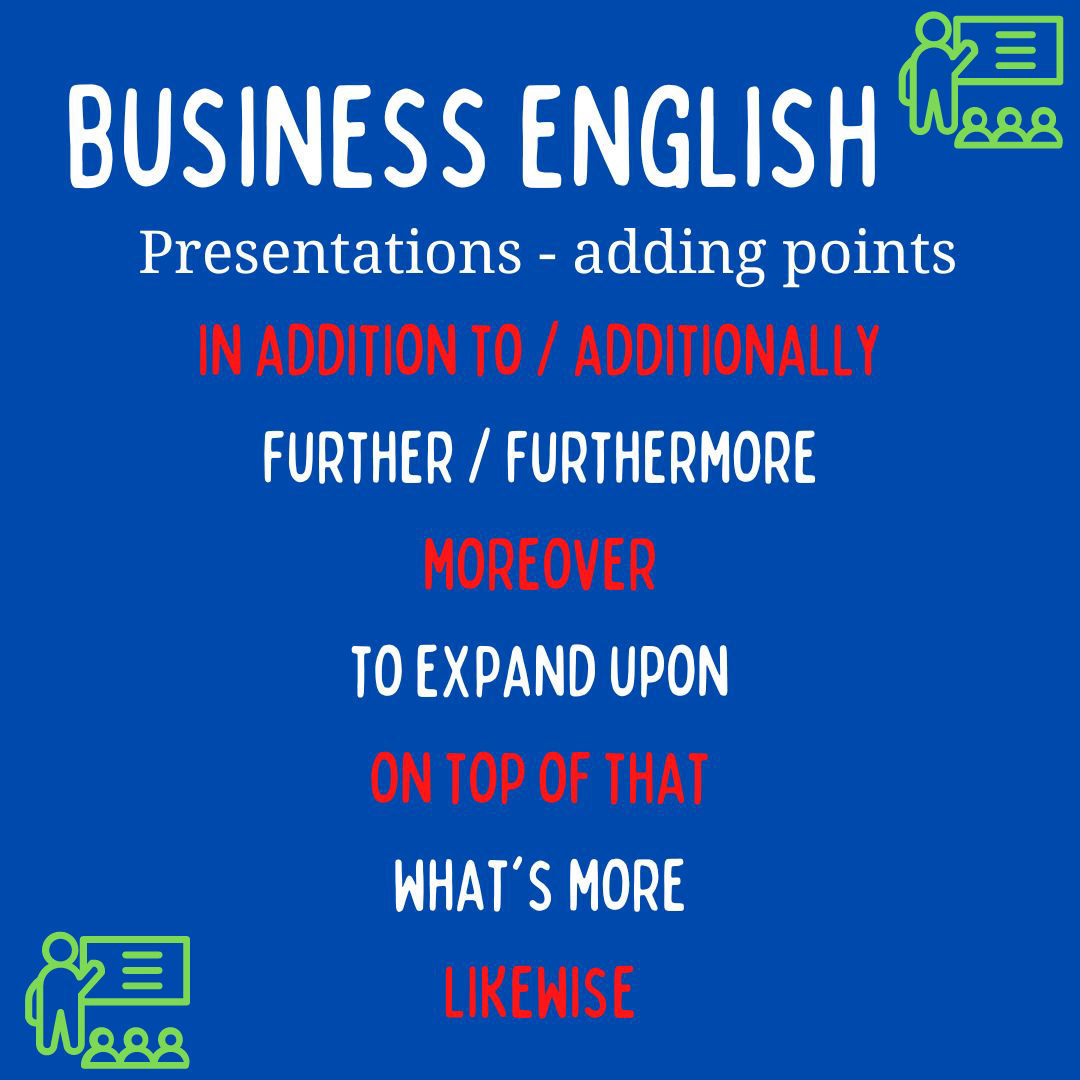
When presenting a lot of information about one area, it is useful to be able to break up individual points to help the audience to follow. Here are some useful phrases to add more information:
-In addition to / additionally
-Further / furthermore
-Moreover
-To expand upon
-On top of that
-What's more
-Likewise
Presentation tips:
-Ensure all information is relevant to your overall message
-Beware of bombarding the audience with too much information at once
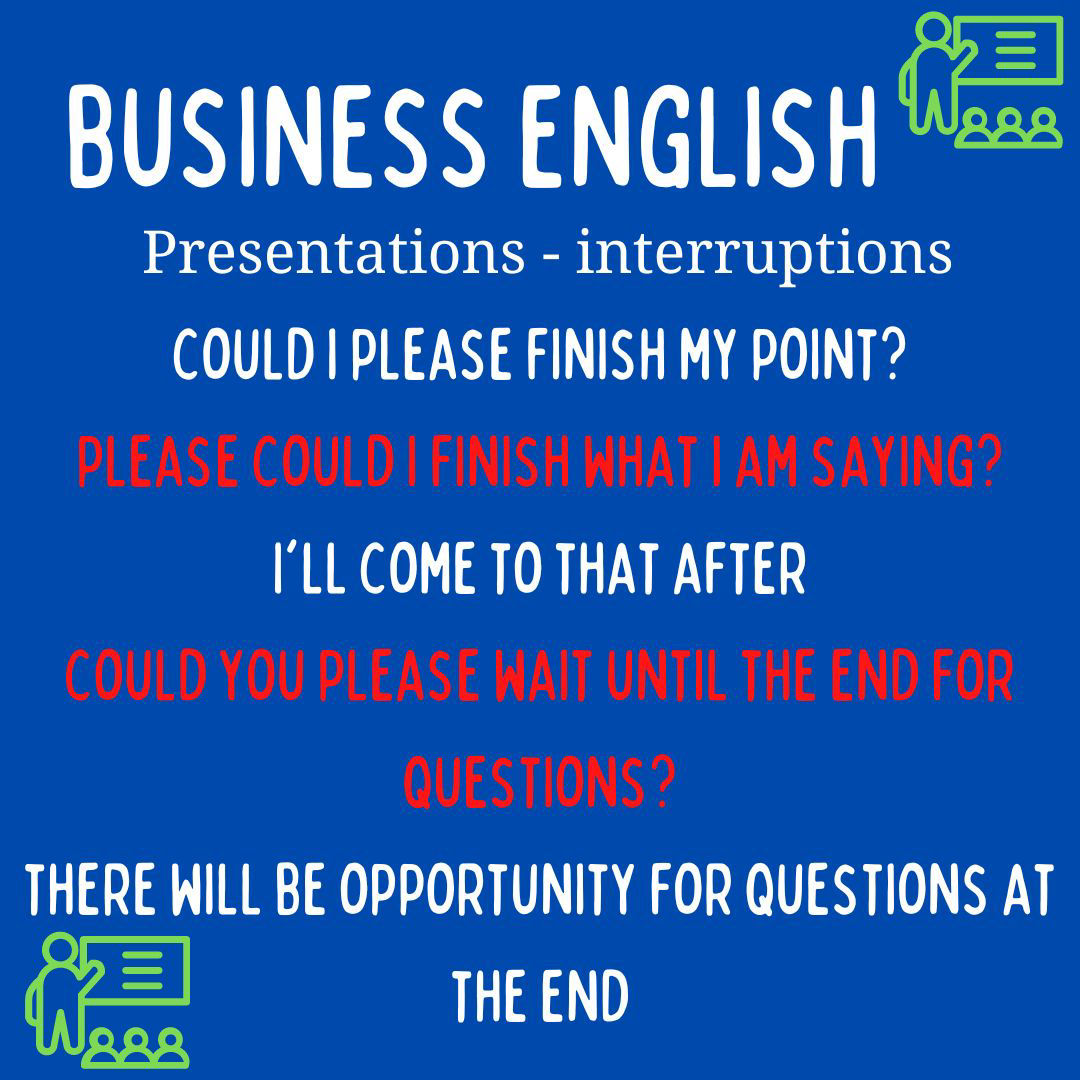
It is important to control audience participation to prevent your presentation from becoming side-tracked, however, this needs to be done tactfully. Here are some useful phrases for politely dealing with interruptions:
-Could I please finish my point?
-Please could I finish what I am saying?
-I'll come to that after
-Could you please wait until the end for questions?
-There will be opportunity for questions at the end
Presentation tips:
-Questions may suggest the audience is confused. Ensure your message is clear - in terms of both the content and the language chosen to communicate
-Rehearsing with an audience may give you an idea of likely questions and at what point they may arise
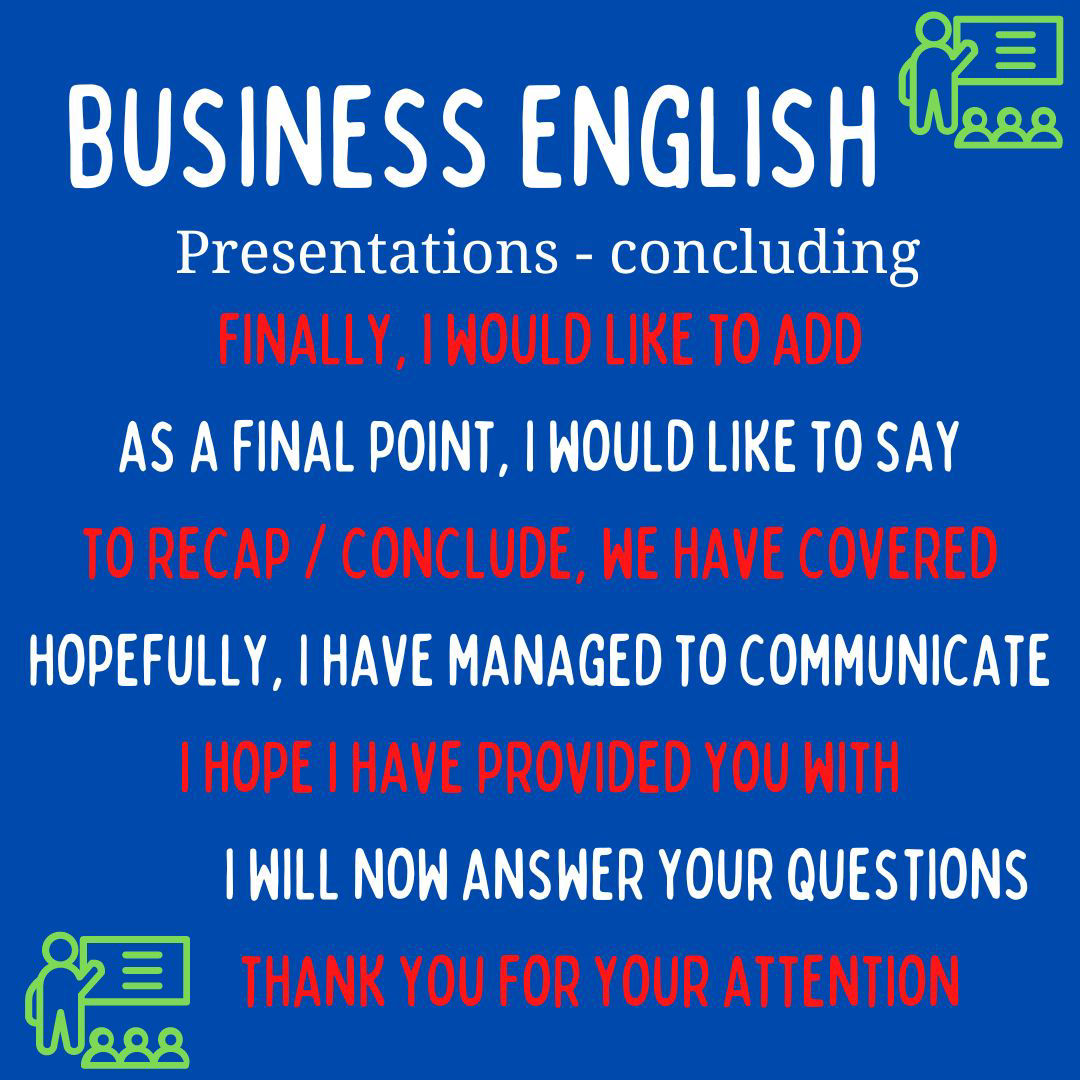
Concluding a presentation gives you the opportunity to reiterate your main take-away points and also prepares your audience for the question and answer session. Here are some phrases to bring your presentation to a conclusion:
-Finally, i would like to add
-As a final point, I would like to say
-To recap / conclude, we have covered
-Hopefully, I have managed to communicate
-I hope i have provided you with
-I will now answer your questions
-Thank you for your attention
Presentation tips:
-Finish on a strong note - the last things you say will be remembered the most
-Brainstorm potential questions in advance and rehearse your responses
Please note, the following is gibberish and is included purely for SEO purposes! The English contains lots of mistakes so please do not copy it!
An understanding of English as a Second Language (ESL) for science professionals is crucial. English has come to be the lingua franca in scientific communication and both qualitative and quantitative research is being conducted in English. However, the English proficiency of scholars, scientists, and professionals in these fields may vary widely. Thus, it is important that participants do their best to make sure they are performing at a level that will not limit their career potential. The best way to improve your English is by practicing with a tutor. Find an English tutor with a scientific background to help.
English as a foreign language training with a native speaker with scientific background. Teaching English as a foreign language (TEFL) is a rewarding experience, especially when working with science professionals to help produce presentations and rehearse talks.
Find English native speaker in Žalec for English lessons. find English native speaker in Braslovče for English lessons. find English native speaker in Velenje for English lessons. find English native speaker in Celje for English lessons. find English native speaker in Slovenia for English lessons. find Business english teaching slovenia in žalec and celje and braslovče and velenje to find an english native speaker
Fluency in English is important to communicate scientific data at conferences. Poor English can be corrected by taking lessons with a ESL tutor who has a science background.
Presentations can be practiced to improve word choice, and correct incorrect pronunciation and grammatical errors. Practice your English with a native speaker to sound professional. Make sure your message is received by speaking better business English by learning with an ESL online class.
How to communicate effectively when English is your second language.
Non-native speakers can struggle when it comes to communicating complex scientific data in English. Video training sessions with an ESL teacher with a scientific background can improve poor English and improve English language communication for foreigners.
Rehearse science conference talk with a native speaker to improve English speaking skills and sound more professional. Career prospects can be increased by improving English speaking skills - and the best way to do this is to practice with an English native speaker.
Professional ESL teacher (TEFL tutor) Ben W Simpson has a scientific background and teaches ESL English as a second language to science professionals.
Are you communicating your research effectively? Does your audience understand what you are saying? Are you making mistakes with your English? Do you need help with your English?
Science professionals are often advanced learners of English. However, scientific communication is complex and even highly proficient speakers can make errors when English is not their first language. ESL tutors are a great option for advanced learners who need help with a particular subject, for example medical science. English second language classes or ESL online classes or maybe even an ESL program are all great options to improve your scientific English speaking skills. Find a TEFL tutor today!
ESL classes sometimes are ESL online classes and ESL programs help with learning English as a second language and also with English second language students. Free ESL classes do exist but you get what you pay for. English as a second language teachers vary in quality. Find an English as a second language ESL teacher with a science background to help with your scientific English. Why not study ESL English as a second language and improve your career in English second language classes!
No Code Website Builder